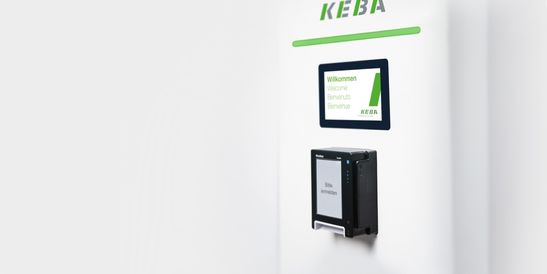Charging electricity vs fueling – which is cheaper?
- Knowledge
- Charging
- Private
- Billing
- 26.7.2022
- Reading Time: {{readingTime}} min

Contents

This article will discuss the consumption costs of vehicles. They depend on two factors: 1) the consumption and 2) the costs of the energy used. The product of consumption and costs per energy unit makes up the consumption costs.
The consumption advantage of electric cars
First, let’s focus on the consumption. For a distance of 100 kilometers, a mid-sized electric vehicle requires 20 kWh on average. A comparable petrol engine – also in terms of its performance – consumes about eight liters of fuel with the same operational profile. As a liter of petrol has a calorific value of about 8.5 kWh, the consumption of the petrol engine is equivalent to 68 kWh – and is therefore 3.5 times higher than that of an electric vehicle. This is due to the bad efficiency of petrol engines. While an electric motor converts 85 to 90 percent of the energy input in motion,1 the internal combustion piston engine converts 40 percent in theory, but with the various load conditions, it is only 25 percent or less in practice. The majority is given off as heat.2 In addition, the electric vehicle converts kinetic energy into electric energy as soon as there is a forced delay. Using the brakes thus charges the battery. In contrast, a combustion engine blows out kinetic energy by turning it into heat in the brakes.
Consumption costs with electric, petrol- and diesel-powered cars
Now let’s turn to energy prices. In June 2022, the average cost of premium petrol in Germany was 1.92 euros per liter, diesel was 1.87 euros per liter, and a kilowatt hour of electricity including basic costs for private households was 34.6 cents. In the example of reasonably powerful mid-sized vehicles, this amounts to pure consumption costs per 100 kilometers of 15.36 euros with petrol-powered cars and 7.28 euros with electric models. In this case, then, the petrol engine is more than twice as expensive (+110%). A similar diesel engine (assuming a consumption of 6 liters per 100 kilometers) would amount to 11.22 euros, which is still 1.5 times as expensive (+54%). For the sake of completeness, we should note that electricity from fast charging stations, which are mainly used for long distances, is generally significantly more expensive than that of your own wallbox at home. However, many electric car drivers profit from free electricity at their workplace (with a potential tax on benefits in kind, depending on the case) or from very cheap electricity at home from the domestic photovoltaic system.
The more you drive, the cheaper the electric car
Which engine is cheapest overall – this is called the ‘total cost of ownership’ – is decided by additional factors, first and foremost the annual mileage. Add to this purchase costs, depreciation, and extra expenses like taxes, insurance, and expenses for service and repairs. In principle, the following is true: If you drive a lot, you benefit from lower consumption costs more quickly than people who drive less. Compared to a petrol engine, an electric vehicle with cheap consumption costs yet higher purchase costs may already prove profitable after two years – or after as many as eight years. Given equal purchase costs – a parity is expected in 2025 – an electric vehicle is, of course, cheaper from the very start.
Energy costs: you can produce your own electricity, but not your own fuel
What will the future look like? How expensive will fuels be – whether fossil or renewable – and how expensive electricity? Nobody can predict the answers. Only the past is certain: Since 2002 (so, in the past twenty years) the price for a liter of premium petrol in Germany increased from 1.05 euros to 1.92 euros (as of June 20223) – by about 83 percent. Diesel prices hiked by about 123 percent in the same period.4 Energy from the wall socket has even increased by 147 percent since 2000.5 Does this mean that the consumption benefit of an electric car is cancelled out by the steeper electricity price increases in the long run? One thing in particular is evidence of the opposite being true: You can produce your own electricity almost anywhere in the world. Oil as the (most important) raw material for petrol and diesel is only exploitable in some countries. In the medium term, this moderates the price increase of electric energy. Add to this that not only are entire nations hypothetically independent in electricity production but also individuals. A PV system on your roof, which is gradually becoming a standard feature of private residences, allows anyone to produce their own electricity to a certain degree (see excess PV charging). Conversely, fuels cannot be self-produced. This technological circumstance offers 1) more independence by using electricity for your mobility and 2) a tendency of lower energy costs. The electric vehicle thus makes for low consumption and low energy costs.
Quellen:
1 https://blog.energiedienst.de/der-elektromotor-hat-noch-viel-potenzial/ bzw. https://www.industr.com/de/weltrekord-elektromotor-mit-fast-prozent-energieeffizienz-2299451
2 https://de.wikipedia.org/wiki/Verbrennungsmotor#cite_note-7
3 https://de.statista.com/statistik/daten/studie/776/umfrage/durchschnittspreis-fuer-superbenzin-seit-dem-jahr-1972/
4 https://de.statista.com/statistik/daten/studie/779/umfrage/durchschnittspreis-fuer-dieselkraftstoff-seit-dem-jahr-1950/ (Diesel: 2002: 0,84 Euro, Juni 2022: 1,87 Euro)
5 https://strom-report.de/strompreise/strompreisentwicklung (Strom: 2000: 0,14 Euro / kWh, 2022: 0,346 Euro)







